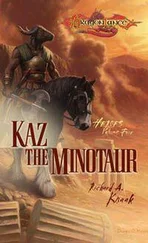That was the first time I had ever heard John called that. It seemed to make him into a different person and lift him out of the two roles, child and murderer, imposed on him. I told them he had locked himself in the library and went with them down the passage. I knelt down by the library door and looked through the keyhole. The key was in the lock. Poking it through wouldn't have retrieved it from this side for the bottom of the doors were flush to the wooden flange at their foot. The older policeman told the sergeant to break the doors down but he could see this was impossible, they were heavy and made of oak.
Ella had joined us by then. ‘Some of the keys fit more than one door,’ she said. ‘We could try others in the lock.’
She and I went into the dining room. Ida and Mrs Cosway were sitting on opposite sides of the table, not looking at each other but past each other at opposite walls. I hadn't noticed till then that they both had blood splashes on their clothes but nowhere on their skin. There was a powerful smell of the carbolic soap Ida used in the kitchen. They had washed their hands and Mrs Cosway's showed cuts to her thumbs and fingertips and palms. No one spoke. I looked in the sideboard drawer. The left-hand division of it was full of keys, some with labels tied on them with string, and among them was a small white tablet of Largactil. The drawer must have been slightly open when John threw away the pill Ida was trying to give him. Ella picked out possible keys, maybe ten or twelve of them, and we had started back when Mrs Cosway spoke.
‘When they have got him out of there they must take him away. We cannot live in this house with a homicidal maniac.’
‘Oh, Mother.’
Ida had made her usual rejoinder to shocking remarks from that source and Mrs Cosway hers to this reproof, ‘Oh, Mother, nothing.’
After the key John had used had been pushed through the lock, Ella tried one after another of those we had brought from the dining room. Almost the last one she tried – it was labelled bedroom five – unlocked the door. I saw the interior of the library with new eyes, the policemen's eyes, the way I had seen it the first time I went in there. They were even more astonished by it than I had been. At least I knew from the first that a library and a labyrinth both existed in this place. They stepped over the threshold to be faced by a wall of books and were led by Ella along tortuous passages, expressionless marble faces looming above their heads, every turning leading to more laden shelves, every narrow defile apparently a dead end until a side passage suddenly opened where it had seemed there was only paper and vellum and that smell of ancient printer's ink. The sergeant's face showed half-angry bewilderment as the last angle was past and we were all crowded together in the central space. John was there but no one went near him.
Someone – Ida, I suppose – had replaced all the books he had pulled off the shelves last time he was there. He was sitting on the floor, his back propped against Longinus's plinth, and he had been writing or drawing something in a notebook. The two strange men he had never seen before disquieted him, that was obvious from his expression, but he didn't speak. He put the notebook and pencil on the floor and got to his feet. There was blood on him, but not much, and it was on his clothes, not his skin. His hands were intact, not a cut to be seen. His eyes moved from one policeman to the other, to me, to Ella, then, quite quickly for the slow mover he usually was, he stepped into the passage behind him and was gone. He had disappeared into that part of the library where I had never ventured, a wilderness of bends and angles, all lined with the ten thousand books Zorah had told me were in there.
‘Can you get him to come out?’ The sergeant addressed Ella in an exasperated voice.
‘I shouldn't think so. You mustn't touch him, you see. He goes mad if he's touched.’
‘He's mad already,’ said the chief inspector.
No one attempted to follow John. I picked up the notebook he had been writing in. It was clean of blood, unmarked by anything but the pencil he had used. He had been drawing and proving the theorem of Pythagoras.
Looking at it, Ella said, ‘He used to do that a lot when things were bad for him and he was troubled. Pythagoras comforted him.’
The policemen were uninterested. Conferring, they seemed to decide to send for ‘people who can deal with this sort of thing’, and asked Ella if they could use the phone. What Mrs Cosway thought of their summoning what people usually call ‘men in white coats' I don't know, but she must have overheard them. Still half-disbelieving it had happened, I had a desperate desire to run away, to go anywhere out of this dreadful place, and I said to the sergeant, he being the more approachable of the two, ‘I should go to Windrose and tell Mr Dawson. They were to be married tomorrow.’
‘We'll do that,’ he said. ‘We'd prefer you to stay here.’
With my chance of even a brief escape gone, I went back into the dining room, where Mrs Cosway told me to make everyone tea. Her outburst about homicidal maniacs seemed to have restored her for she looked much better. Though she had addressed me, Ida got up. Ida always did get up when anything needed doing. It was as well she did for though I could make good coffee, the brewing of tea defeated me. I could never quite appreciate the need for the water to be on the boil and can't really to this day. Her hands bandaged in dishcloths, Ida made the tea while I set out cups and poured milk for those who wanted it.
Everyone had their tea and had begun drinking it when the people who had come for John arrived. I heard the van they came in but I didn't see them. Their going into the library seemed to me like a kind of desecration. By that time I was close to thinking of it as John's place, somewhere he might have spent the greater part of his time if this had been allowed, almost have lived in there among the ten thousand books, pulling those he disliked off the shelves, reading his Euclid, solving his number puzzles, and been happy. Only it hadn't been allowed.
They hunted the poor Minotaur and brought him out. I saw none of this. Ida told me. Whether they charged him with Winifred's murder before they took him away, I don't know. Of this sort of procedure I know nothing. I believe the inspector left the house a bewildered man. Apparently, he expected insanity, as he called it, and mathematical ability to be mutually exclusive. In other words, if someone was mentally disturbed he must also be stupid. Anything else he couldn't understand but he didn't dismiss it, he was genuinely puzzled.
More police had arrived by this time and concentrated their efforts on the drawing room. What they did in there I don't know but it took a long time. They must have measured things and taken photographs but it would have been less thorough than it would be today. One of them came out and said he would like all the clothes we had been wearing that day for forensic examination. The inspector came back at about seven, told us Eric ‘had been informed’ and he would appreciate it if none us went anywhere that evening. With a sharp look at me, he said we must not on any account go far, definitely not leave the country, and were to notify the police if we intended to leave Windrose.
‘I don't know about anyone else,’ said Mrs Cosway, a remark which might have served as an epitaph for her, ‘but I should like dinner.’
‘Oh, Mother,’ said Ida but she got up as usual.
I expected Eric to make some sign, to come or phone. By that time he must have been told. Perhaps he had gone to Felix or asked Felix to come to him. I had no idea if he had loved Winifred or just wanted a suitable wife and, though he was wrong, he had thought her suitable. Neither he nor Felix appeared. No one in that house, as far as I could tell, showed the least grief over Winifred. Shock, yes, a certain amount of fear, but I saw no sorrow.
Читать дальше












